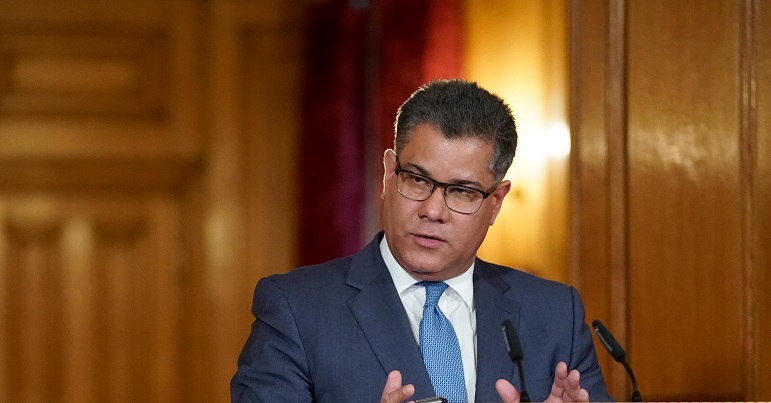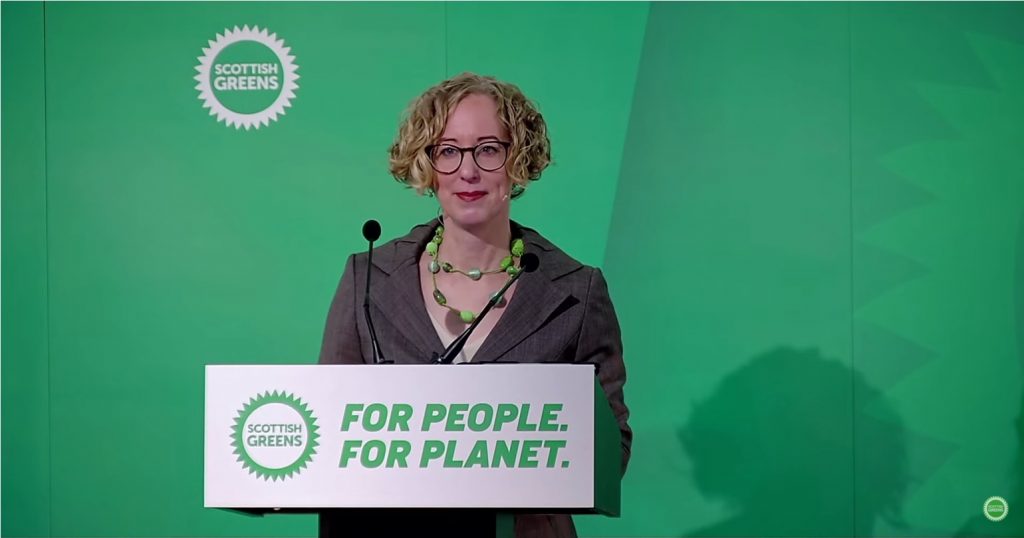UK ministers can either watch the world burn or let the real world in at COP26

In April 2021, the President of COP26, Alok Sharma, tweeted that ‘to host a successful, inclusive COP26 this November, both youth and civil society must be at the heart of both our preparations, and the summit itself’.
The climate emergency does require a democratic response – and the way we approach the talks this week should reflect this. But that’s not how many people have experienced this or previous climate conferences
Too often, COP summits have ended up being talking shops of world leaders, divorced from the reality that for millions, the climate crisis is not some dystopian future but the devastating present. Last week’s budget only demonstrates how out of touch the government is, with the Chancellor pledging tax cuts for domestic flights (not to mention the banks and champagne!) but doing nothing about the astronomical costs of rail.
The truth is, for as long as only a few wealthy and powerful people are making decisions, the decisions they make will be taken in their interests, and not the interests of everyone – and especially not those most affected by the climate emergency.
Whether it’s giving people more power over our political institutions, our communities, or our workplaces, more democracy is a precondition of averting climate catastrophe.
Despite Sharma’s warm words, there has been little to nothing in the way of any concrete steps to democratise the conference. For many people across the country, negotiations at the summit next week feel remote. A recent poll found that 51% of UK adults think the COP26 summit will not make a positive difference to climate change. Without proper democratic participation a chasm will once again separate those watching the summit on their televisions or even marching for climate justice on the streets of Glasgow, from those inside the conference hall.
We must bridge that gap. That’s why we’ve been meeting regularly in my constituency to produce a Sheffield Hallam People’s Manifesto for COP26, bringing together campaigners, trade unionists, experts, and those who just want to know how they can help tackle the climate emergency. At a time when many feel voiceless, we aimed not only to put on record my constituent’s strong belief that more can be done, but to make concrete proposals about what they believe must be done.
The ideas in our manifesto are wide-ranging, speaking to policy on planning and local government, energy, transport, finance, food, nature, industrial strategy, and international climate justice. Above all, they speak to the dynamism and ingenuity of my constituents in imagining how to do things differently. It is my job as their representative in Parliament to amplify these ideas and raise these voices.
Last week, after months of assemblies and discussions, we launched the manifesto and I have since travelled to 10 Downing Street with constituents to hand a copy straight to the Prime Minister and COP President Alok Sharma.
Of course, I hope that the government will listen to the ideas and principles we have outlined —these are Hallam’s view of how we should build an economy and society with climate justice at its core. They provide the Prime Minister with a much better basis from which to begin his negotiations.
But our project to democratise climate action can’t stop there. Democratic participation needs to be placed at the heart of all our national climate planning at and beyond COP26, from citizens assemblies to empowering unions at the forefront of the transition. The more people are empowered to make decisions on the climate and the sort of transition we need to make, the more this Government will have no option but to implement ambitious, effective, just, and inclusive climate policy.
Ministers have a choice at COP26. They can watch the world burn comfortably from the windows of the conference centre, or they can let down the drawbridge and cross the gulf between themselves and the millions of people demanding a more robust response to the climate crisis. It’s time they let the real world into the negotiations.
Olivia Blake is Labour MP for Sheffield Hallam and the Shadow Minister for Nature, Water and Flooding.
PS. We hope you enjoyed this article. Bright Green has got big plans for the future to publish many more articles like this. You can help make that happen. Please donate to Bright Green now.
Image credit: Number 10 – Creative Commons




Keep it up Olivia !
I have just received my first Bright Green email.
I look forward to more.
I am not great on Twitter, Facebook or tweetings so this suits me.
Joan
GP Member East Lancs